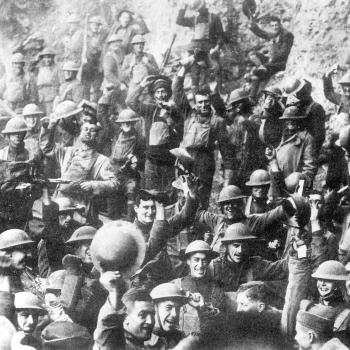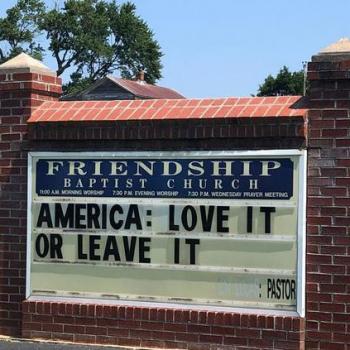Prophetic Patriotism
The United States is always a nation in the making. It is a nation of aspiration, and sometimes desperation at how far we have fallen from our values. The founding parents spoke of “all men created equal” and endowed with certain rights – life, liberty, and the pursuit of happiness – but their circle of rights did not include enslaved and indigenous peoples and women. Still, a nation in the making, many of us seek the more perfect union, especially in these troubled times.
Theodore Parker, the Unitarian minister and abolitionist noted in hopeful words that inspire the dream of America:
Look at the facts of the world. You see a continual and progressive triumph of the right. I do not pretend to understand the moral universe, the arc is a long one, my eye reaches but little ways. I cannot calculate the curve and complete the figure by the experience of sight; I can divine it by conscience. But from what I see I am sure it bends towards justice.
With the nation splitting apart, President Abraham Lincoln noted in his first Inaugural Address:
We are not enemies, but friends. We must not be enemies. Though passion may have strained, it must not break our bonds of affection. The mystic chords of memory, stretching from every battlefield and patriot grave to every living heart and hearthstone all over this broad land, will yet swell the chorus of the Union, when again touched, as surely they will be, by the better angels of our nature.
Today, we need the spirit of Theodore Parker, Abraham Lincoln, Howard Thurman, Martin Luther King, Dorothy Day, Cesar Chavez, Delores Huerta, and John Lewis – along with Jesus and the Hebraic prophets, to call us to a prophetic patriotism, as John Lewis says:
What does it mean to love our nation? What does it mean to be patriotic? Or be a prophetic patriot today, when our leaders seem to be following the worst angels of their natures in ways that divide and destroy?
Prophetic patriotism is about the stories of people who courageously went against the crowd to call our nation to the better angels of our nature.
Historian David Sox notes, “If I were asked to date the birth of racial consciousness in its present form, I think I should put it on the twenty-sixth day of the eighth month of the year 1758 – the day John Woolman in a public meeting denounced slavery.” As a young man, John Woolman entered business as a shopkeeper and quickly gained his employer’s trust. When his employer asked him to sell a female slave, Woolman felt uneasy at “writing an instrument of slavery for one of my fellow creatures.” Woolman wrote out the bill of sale, his last, after sharing with his employer that “slavery was inconsistent with the Christian religion.” From then on, Woolman would no longer participate in the slave trade, and sought to convince everyone he met to free their slaves.
Once Woolman recognized his personal role in the evils of slavery, he began to wear simple, plain garments in recognition of the relationship between the use of dye and the slave trade. Later he quit selling products connected with slavery, such as rum and molasses, and traveled around the United States, reminding his fellow Christians that slaves were God’s children and deserved the same rights as their white siblings.
In 1954, the Supreme Court declared school segregation unconstitutional. But still schools in New Orleans remained segregated. Blacks and whites went to separate schools. In 1960, six-year-old Ruby Bridges was selected to be the first black student to attend the William Frantz Elementary School. On her first day, she was met with jeering crowds, shouting words of hate. And yet she walked on, with courage and inner strength.
Each morning, Ruby and her mother would pray: prayer became the source of Ruby’s strength, enabling her to face hatred with maturity and grace. Her faith led her to develop a practice that stunned even her adult supporters: praying for the protesters who hurled insults and threats. Ruby protested and she prayed, and her love and courage won the day.
Sixteen Montana youths between the ages of 5 and 22 sued the state, the governor, and the Montana Department of Environmental Quality in 2020 over Montana’s fossil fuel-based energy system, citing evidence that burning fossil fuels contributes to climate change and sickness. In 2023, they won their case: the judge wrote that Montanans have “a fundamental constitutional right to a clean and healthful environment, which includes climate as part of the environmental life-support system….” Today, we celebrate the courage of children and youth to challenge adult authority figures to save their lives, future generations, and heal the earth. God’s truth is marching on.
Let us follow the better angels of our nature, let us be prophetic healers, seeking life, liberty, and the pursuit of happiness for all. Let us make good trouble, as John Lewis proclaimed in Jesus’ name to heal the soul of the nation and planet.













